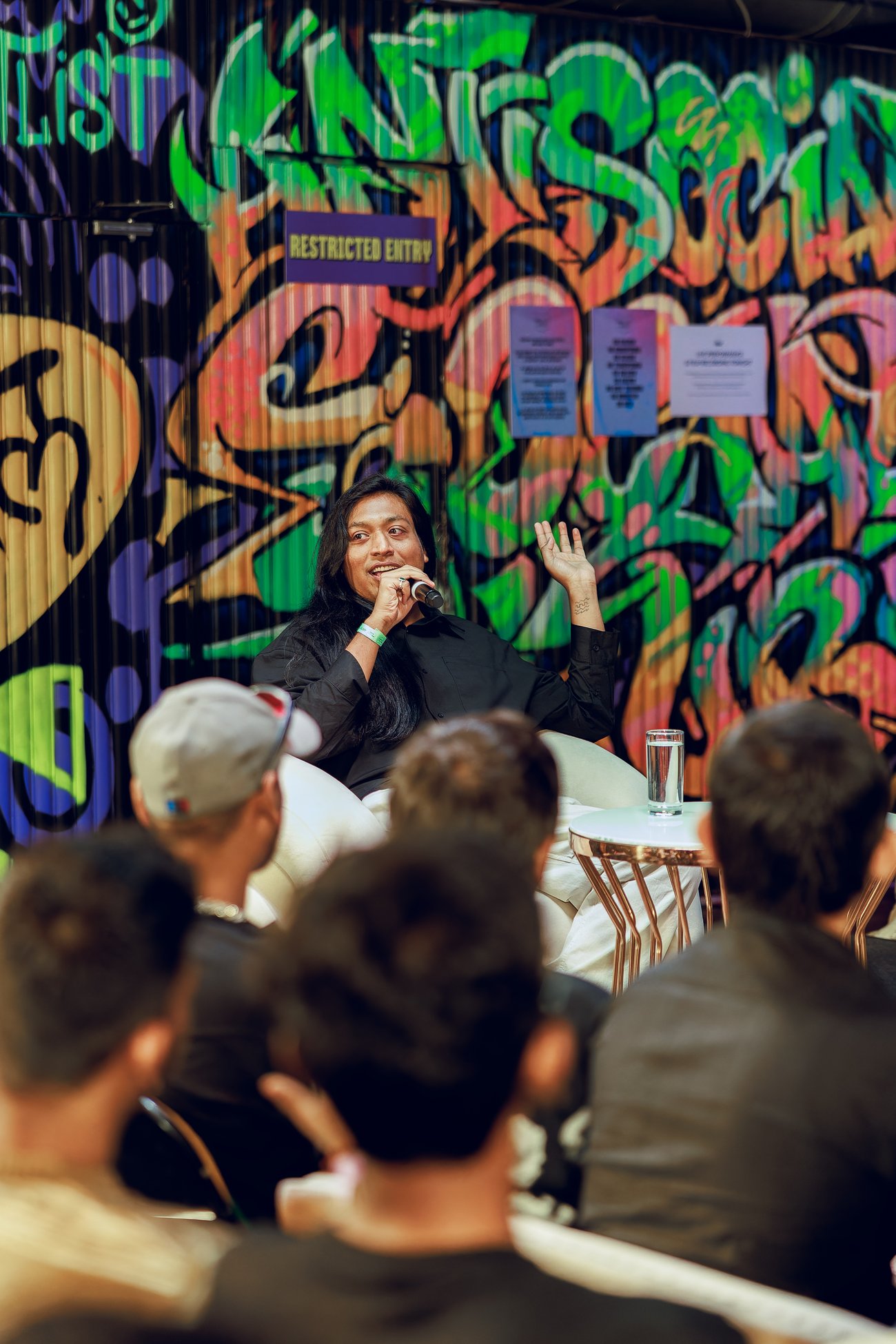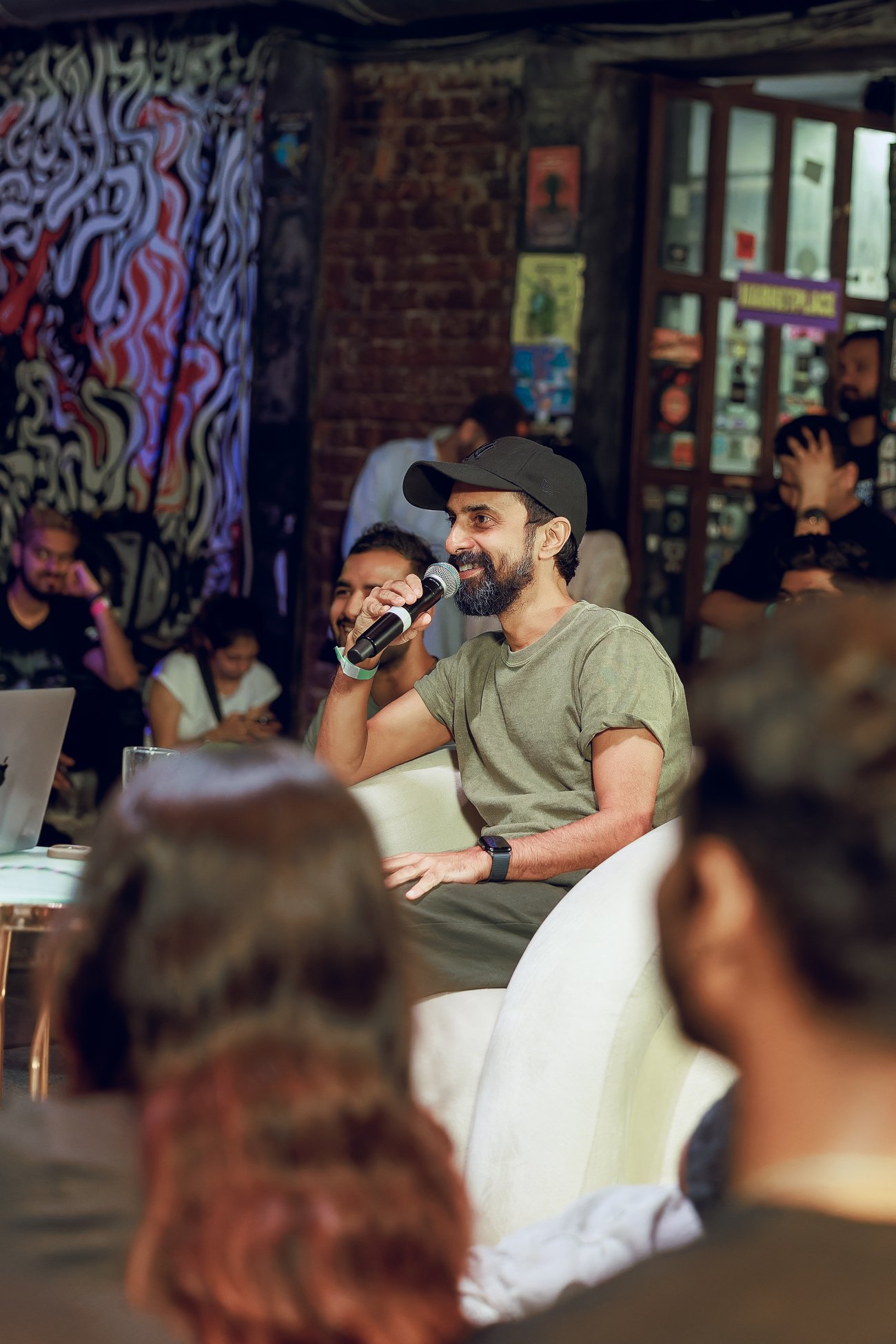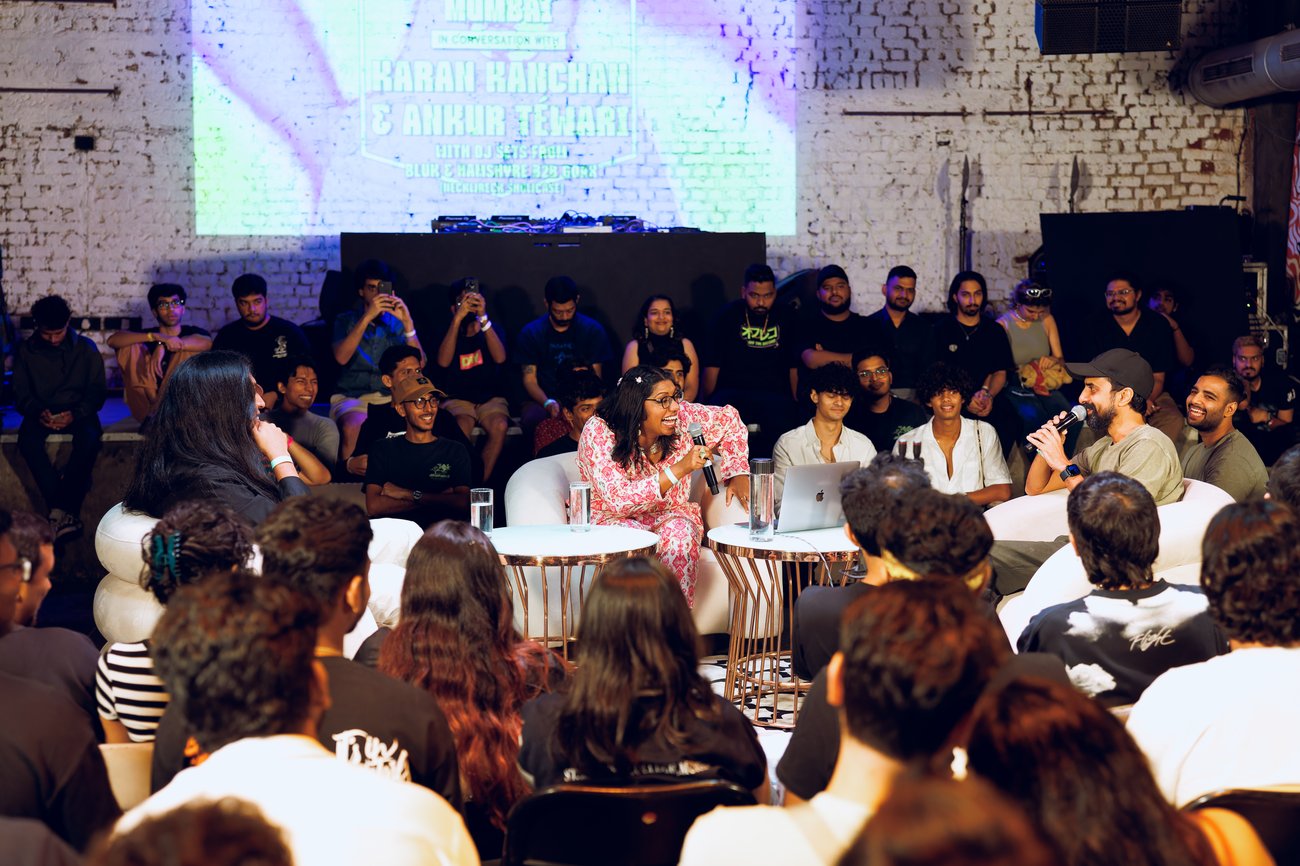Indian Independent Music Survives Because We Support The Scene
“I don't know how to make music, I'm just still figuring it out daily.” - Karan Kanchan

“I realised that somehow, I could sing in tune. And singing and playing music was getting me the right kind of attention.” - Ankur Téwari
The first thing that strikes you about singer-songwriter Ankur Téwari and producer Karan Kanchan, is their humility. The rotund belly of India’s independent music scene is made of mainly struggling musicians. To see success is rare and to survive is even harder. Which is why supporting one another and creating opportunities that help nurture talent is what drives the conversation between Ankur Téwari and Karan Kanchan at Boiler Room x Ballantine’s True Music Studios in Mumbai.

Having a thriving music career is not easy to come by, and at the foundation of the True Music platform is to champion, support and promote diverse and underrepresented voices in the global music community. For Ankur Téwari it was his friends that fed, watered and sheltered him while he made little-to-no money trying to be a singer-songwriter in the late 90s in Mumbai. Karan Kanchan on the other hand stumbled into his music career “by accident”. With a computer at his fingertips and inspired by Japanese classical sounds, he was misunderstood and no label saw the potential of his music.
“Karan’s life started in the internet era. While Ankur’s came from the analog era.”
Though the timelines of their careers are poles apart, their humble beginnings and a vested interest in cultivating a music scene that gives back rather than takes advantage of you, makes them two of a kind.
Talking about his most popular song, ‘Sabse Peeche Hum Khade’, Ankur Téwari takes us back in time to when he didn’t let rejection get the better of him.
Below are some of the highlights of the conversation:
Ankur Téwari: It was kind of my middle finger to the record label industry. My demos had gotten rejected from all the labels in Bombay. Those were the days of tapes and I had taken my tape around. And there was no internet. So labels were the way that you could release music. Then somebody told me you should put your music in films. But then no filmmaker was taking my music in films. So then I made a film and put the song in a film. And then the first time I heard this song was in Dolby in a theatre. F*** stereo. We're going to release Dolby. So that's why I love this song. And it's been in my setlist ever since I made it.
Mae: Even with you, Karan, you went through that struggle at some point where labels
didn’t think much of the music that you were giving them.
Karan Kanchan: It was easier for me because we had email access to all these labels.
I didn't have to go take a tape.
Ankur Téwari: I found a book in Delhi where you had numbers and not mobiles, landline numbers! You had to call landlines.
Karan Kanchan: But I was privileged enough to just send a email and I would just forget
about it. But one of the emails that I used to just send landed up with Divine. And that's how
we started working together. So it was easier for us for sure.

Mae: So I know that the two of you do a lot of work towards nurturing the independent music scene - being able to bring up new talent and give them a chance. So I wanted to understand from you, what do you think is not working in this industry, and what do you wish
could be different?
Ankur Téwari: I mean, I feel it's not a straight answer. There are a lot of things that are working very beautifully. There are some things that are not working. Also, it's the call of the times that
numbers are playing a very important role in what people are doing with music, which I think is a blessing and a curse. I feel what needs to be done is we need to document our times, we need to tell our stories, and we need to be honest about the stories we are telling and the songs we are putting out. A lot of music that's being made is kind of catering to the numbers rather than telling stories, and I feel the stories will outlive the numbers. And that's what we need to do, honestly.
Karan Kanchan: I feel like on my level, when I started off as a producer, all of the stuff which I felt like was missing in the scene, that's what I'm trying to do. We do a lot of like producer meetups or with our Neckwreck crew. They've always been there, supporting us from day one, and a lot of them are artists themselves. They are music producers. And we built this community around the producers and the people who love this kind of music. And for every show we have done this thing where we make sure that every show has one act who is playing a debut set who has never performed before. We always do producer meetups, where we all sit together. I take the mic, I say, “my name is Karan Kanchan. I've been doing music for so many years. I use this software. These are the genres I produce. This is one thing I'm good at and one thing I want to get better at. I ask everyone to do that.” There are so many producers, the entire community. We are friends now. Supporting each other
and that's the best. That's what was missing when I started off. But I'm glad it's happening now

As the conversation goes from humble, to heartfelt and just generally very lovely and squishy, Boiler Room x Ballantine’s True Music Studios is a true testament for what it means to stay true, not compromise on one’s dreams, and curating cutting edge collaborations that push local music scenes forward. According to Ankur Téwari, “We are a scene where we help each other out, we are holding each other. Even when you’ve risen up and fall down. You hold them. You pull people up.”
PS. We hope that Ankur Téwari invites us for his next “horizontal gig”.
Watch the full coversation below:
Photography by Fardad Postwala.